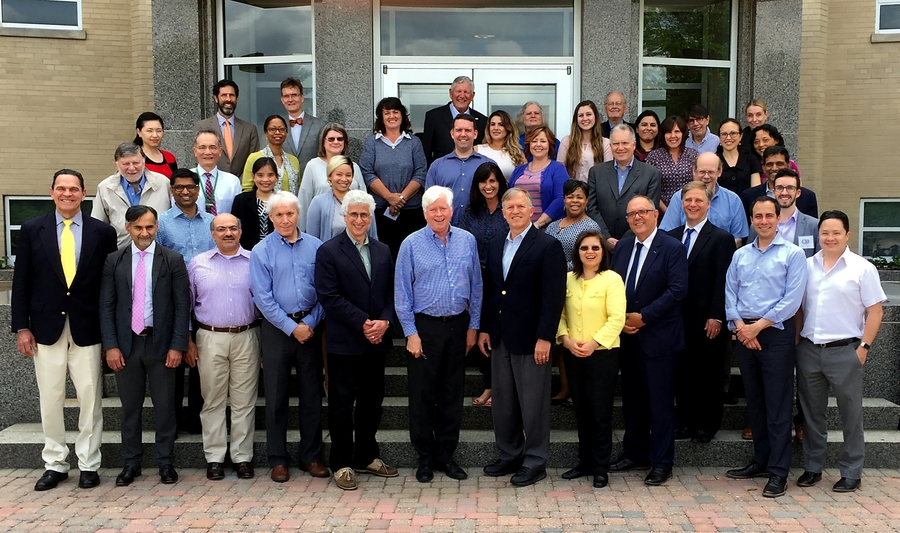| DISCLAIMER:
The Drug Induced Liver Injury Network (DILIN) conducts research sponsored by the NIH to improve our understanding of the causes and outcomes of drug induced liver injury (DILI) in the United States. Research findings are shared with clinicians, researchers and the public via presentations and peer-reviewed publications. Per IRB regulations, research record (including DILIN causality assessment) are not made available to participating patients, third parties or the public. If you are a physician caring with a suspected DILI patient interested in participating, please visit https://dilin.org/for-practitioners/ for information regarding the study eligibility criteria. Please note that enrollment in DILIN generally requires a physician referral. |
The National Institute of Diabetes and Digestive and Kidney Diseases (NIDDK) has established the Drug-Induced Liver Injury Network (DILIN) to collect and analyze cases of severe liver injury caused by prescription drugs, over-the-counter drugs, and alternative medicines, such as herbal products and supplements. Currently, DILIN is conducting 2 registry studies:
- Retrospective Study, to establish a nationwide registry of people who have experience past liver injury due to prescription drugs and alternative agents like herbal and dietary supplements. This is an ongoing registry that has been active since 1994. Since this is a retrospective registry, it is possible participation can be done remotely and not necessarily on-site. Please contact one of the DILIN sites for more information on participation.
- Prospective Study, to establish a nationwide registry of people who have experienced liver injury within the past 6 months after using certain drugs or alternative products.
- Causality Process and Web Application, The diagnosis of drug-induced liver injury relies on evidence linking the injury to a specific drug or agent. DILIN uses “expert opinion” to determine the degree of association between the implicated medication(s) and the liver injury. This process is identified as DiLiN Causality Case Adjudication which is the DiLiN project primary Endpoint. The DiLiN Causality Web Application is a system specifically developed for this purpose. This is a secure system which was developed by the DCRI IT group for the DILIN network based on an open source platform. The Causality Web Application’s mission is to streamline the previous process which will include more efficient case management and seamless system integration to existing DILIN databases. The DiLiN Causality Web Application is also providing greater consistency within the processes by applying business rules to user’s input.

Mount Sinai
AEMC
NIDDK/NIH
dcri
umhs
UNC-chapel hill
wake health
Indiana University
USC/UCLA
Interested in participating in this study? Contact Us
The DILIN Network Members at the Steering Committee Meeting on May 31, 2018
Bolger Center: Potomac, Maryland
Front row, L to R: Francesco Durazo (UCLA), Jawad Ahmad (Mt Sinai), Hoss Rostami (Duke), Mark Avigan (FDA), Bob Fontana (U Michigan), Jay Hoofnagle (NIDDK), Paul Watkins (UNC), Huiman Barnhart (Duke), Jose Serrano (NIDDK), Joe Odin (Mt Sinai), Vic Navarro (Einstein), Christopher Koh (NIH)
Second Row, L to R: Leonard Seeff (Einstein), Raj Vuppalanchi (Indiana U), Yi-Ju Li (Duke), Sherry Hall (NIH), Dee Faust (Wake Forest), Coleen Crespo (Duke), David Kleiner (NCI), Matt Leonard (Einstein), Naga Chalasani (Indiana U)
Third Row, L to R: Amy Huang (NIH), Paul Hayashi (UNC), Beverly Niles (NIH), Kathy Galan (Duke), Matthew Baum (Duke), Molly Prentice (Wake Forest), Andrew Stolz (USC), Wendy Morlan (Indiana U), Paola Nicoletti (Mt Sinai), Jiezhun Gu (Duke)
Fourth Row, L to R: Don Rockey (MUSC), Hans Tillmann (Eastern Carolina U), Michelle Crowder (Duke), Herb Bonkovsky (Wake Forest), Mariam Farida (U Michigan), Christine Poulsen (U Michigan), Ashley Cawthon (U Michigan), James Freston (UCONN), Stephanie Pagan (Mt Sinai), Susan Milstein (USC), Elizabeth Phillips (Vanderbilt U)
Late Breaking News
Daily Harvest Identifies Cause of French Lentil and Leek Crumbles Illnesses
Investigation of Adverse Event Reports: French Lentil & Leek Crumbles (June 2022)
PBS Frontline “Supplements and Safety” Full Documentary
Spike in Harm to Liver Is Tied to Dietary Aids
Fat Burning Supplement Linked to Liver Failure
Sanofi to Send Letter on Multaq Liver Failure Cases
FDA Warns Consumers about Counterfeit Alli
FDA issues new warnings and precautions concerning diclofenac sodium, including Voltaren Gel
FDA Issues Early Communication about Ongoing Safety Review of Weight Loss Drug Orlistat

